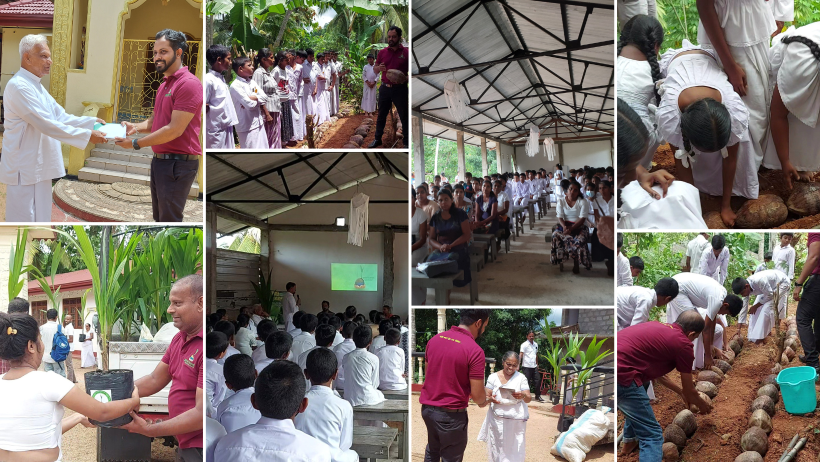Empowering Kabagamuwa Village through the Good Hands
Initiated by Mr. Hemakumara, a retired education director with extensive experience across Kegalle district, this inspiring programme took root. Facilitated by the officers of the Good Hands Project, this initiative sprouted into a well-organized event that left a positive impact on the community. The event was orchestrated to take place within the premises of Sri Nandana Dhamma School, which belongs to the Tummuduna Valukarama Temple. This educational institution plays a vital role in imparting Dhamma knowledge to a significant number of students—ranging from 250 to 300.
Nestled between the towns of Bulathkohupitiya and Kegalle, the remote village of Kabagamuwa hosted the first such project in the area. A diverse group of participants contributed to the programme’s success, including retired Zone Education Directors, namely Mr. Hemakumara and Mr. N.A.S. Bandara, along with Mrs. T.A.R. Manike, Principal of Kalangama Rajasingha Maha Vidyalaya. Joining them were teachers from neighbouring schools, the dedicated students of the Dhamma school and villagers from the Kabagamuwa GN domain.
The programme encompassed activities aimed at raising awareness, disseminating knowledge, and engaging in an enlightening quiz. Following the quiz session, stationeries were distributed among the quiz participants, offering a reward for their active involvement. Practical techniques and methods related to successful coconut cultivation were then imparted to the students under the guidance of their mentors. In a gesture that epitomizes sustainability, seeds and seedlings were generously donated to the temple and dhamma school by the good hands team.
Moreover, a gesture of commitment was extended to parents and teachers who wholeheartedly embraced the good Hands programme, as they received coconut Seedlings a testament to their dedication. Similarly, coconut cultivation guidance books were donated to the Dhamma school library as ensuring the continuous “distribution of knowledge”.


Leave a Reply